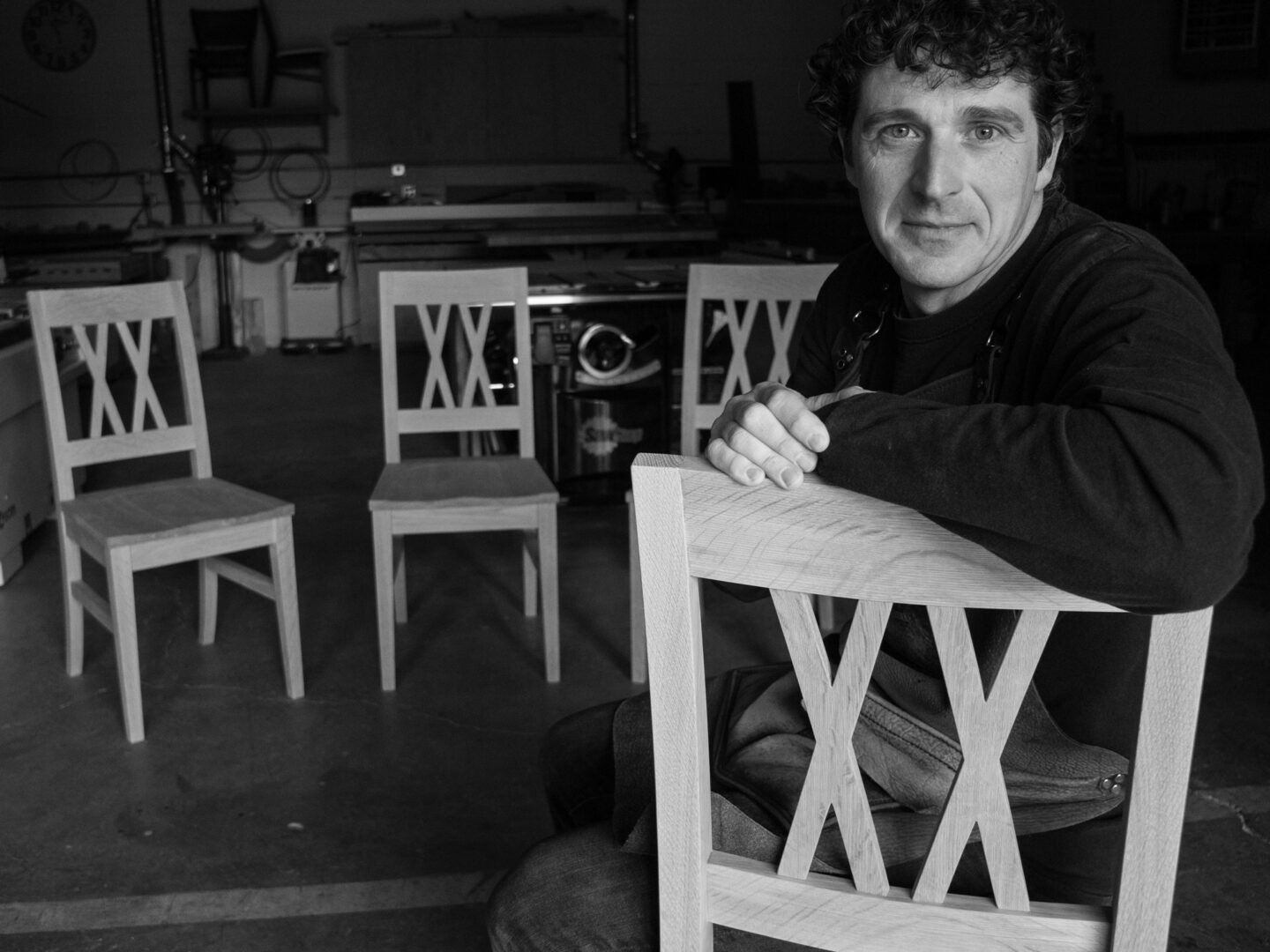We’re excited to introduce you to the always interesting and insightful Jonathan Nussbaum. We hope you’ll enjoy our conversation with Jonathan below.
Hi Jonathan, appreciate you sitting with us today. Maybe we can start with a topic that we care deeply about because it’s something we’ve found really sets folks apart and can make all the difference in whether someone reaches their goals. Self discipline seems to have an outsized impact on how someone’s life plays out and so we’d love to hear about how you developed yours?
Growing up athletics (soccer & basketball) and music (piano & cello) were big parts of my life. In all of those, no one else can do the work for you. Natural ability will get different people different places, but at some point either you put in the time/energy/effort to improve or you don’t.
In 7th grade my just out of college soccer coach shared what the tryout requirements had been at his college and emphasized the importance of goal setting & working on skills outside of practice time to reach those goals. I knew I wanted to play soccer in college, in order to make that happen I needed to outwork everyone else, in and out of practice.
That same year my basketball team alternated between before & after school practices, with a strict policy of if you are late for any practice you do not start/miss playing time in the next game. At the time I didn’t have an alarm clock, so my mom would wake me up. One morning my mom overslept. I ended up late to practices. She was super apologetic & offered to come in and talk to the coach, or at least have me tell him it was her fault. When I started talking with the coach he asked a few clarifying questions to make sure there wasn’t an emergency, then quickly cut me off with “Is your mom on the team or are you? It is not her responsibility to wake you up, it is your responsibility to wake up, get yourself ready & if she is drives you to practice, to wake her up if she oversleeps. Get yourself an alarm clock!”
Those two coaches, both of whom had successful collegiate careers due to their work ethic & self discipline encouraged us to take responsibility for ourselves, structuring their teams to reward those traits over natural ability left deep marks during an impressionable time.
As a one person business the only way things gets done, in the shop or office, is if I do it. I can not deliver a half completed piece of custom furniture. Once completed there is no way to release a update or new version 2.0 or make improvements after a client has it. Skimping or taking shortcuts at any point will lead to a lower quality product or more work down the line to fix it or starting over, so it is worth taking that time to do it right the first time.
Attaching my name to the business was a conscious choice to connecting customers to me, the craftsperson doing their work, but also ties me to them.
I sign, date and attach my logo/brand to each piece. When customers see my name on a piece I want it to bring positive memories of our interactions and delight in the quality, functionality and style of their custom piece. When other people find my name on a piece I’ve built I want it to be because they are enjoying it, looking at the details or wondering where it came from so they can connect with me.
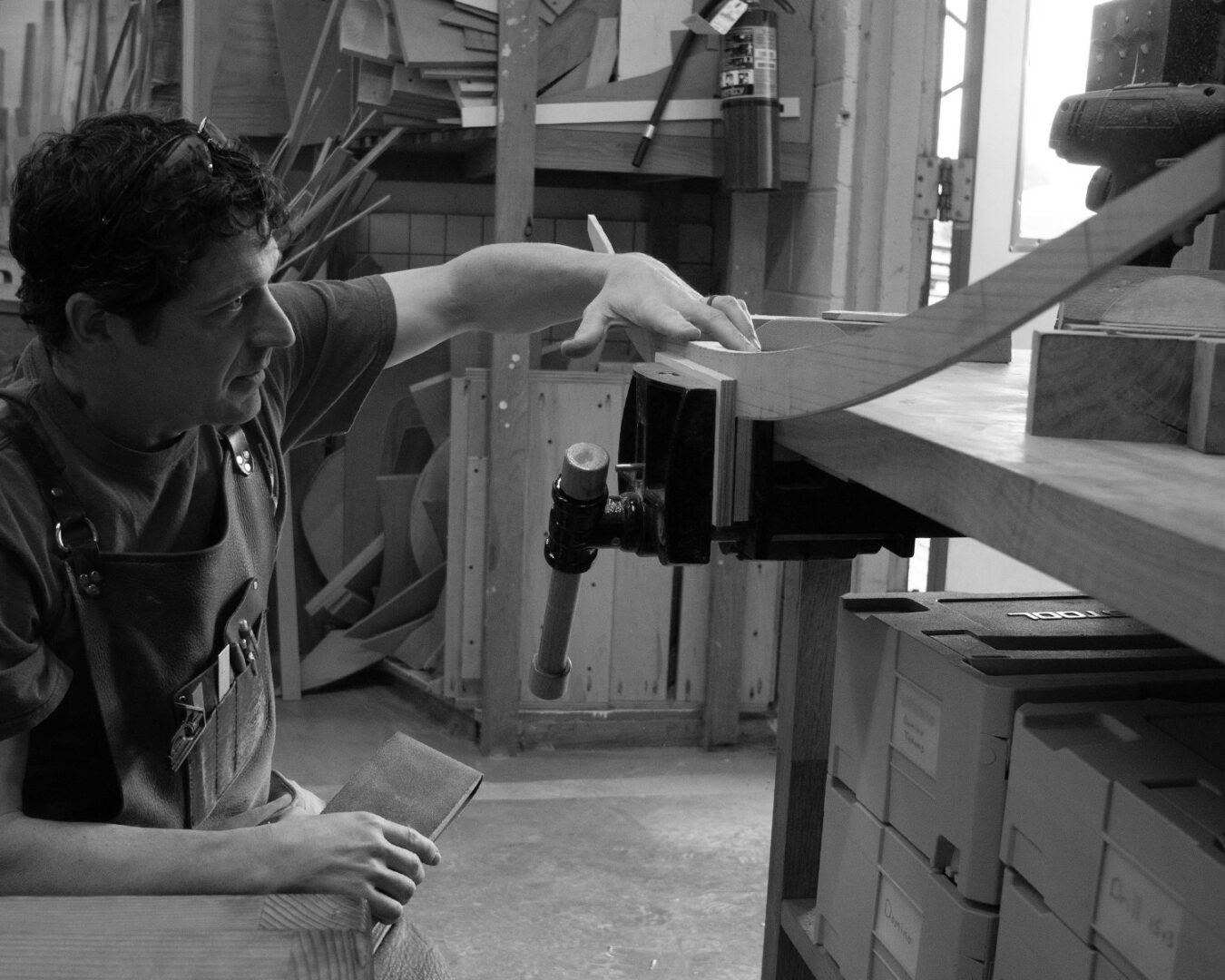
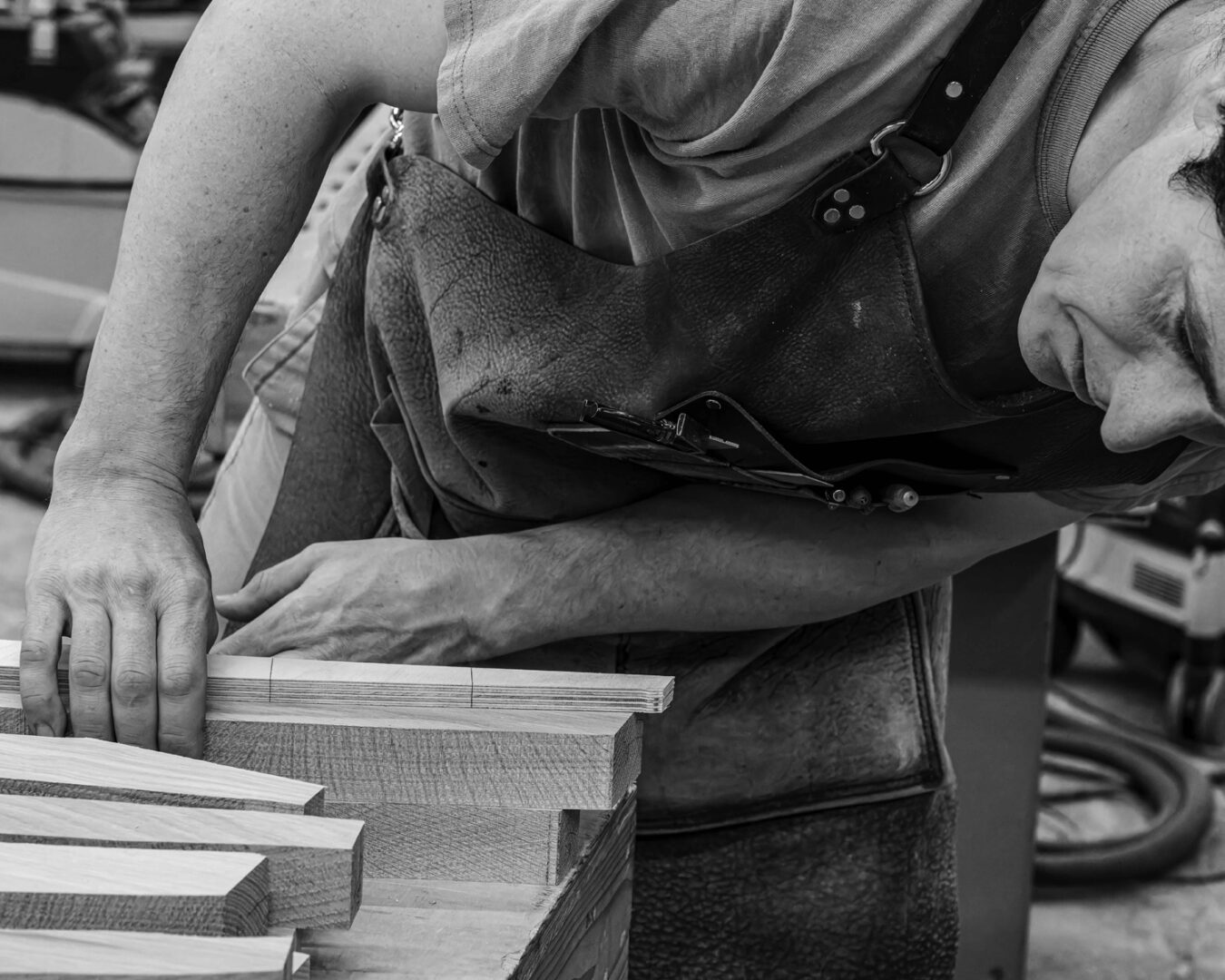
Appreciate the insights and wisdom. Before we dig deeper and ask you about the skills that matter and more, maybe you can tell our readers about yourself?
I design and build custom furniture from locally sourced, responsibly managed wood. Each clients specific combination of needs & wants creates a unique design challenge and creative design solutions.
For tables, media consoles and beds I can usually achieve this with 3d computer drawings.
With projects, like chairs, where slight adjustments in width, depth, contact points, angles can be the difference between a chair that fits no better than a random pair of jeans that is technically “your size” and a chair with a just right/favorite pair of blue jeans fit I start with a custom chair fitting. I then combine data from the chair fitting with a clients style preferences to create a personalized design. From there I create a mockup for the client to sit in to confirm everything is just right before making the actual chairs.
When a client has a set of needs and wants that seem contradictory or impossible to combine into a single design staying curious about possibilities,
and my persistence in coming from different starting points can lead a solution that utilizes the previously unseen overlap to combine the seemingly impossible into one cohesive design.
One example of this the concealed storage bed system I created to meet a clients request for a bed that included the look and open space of a traditional bed frame and the functionality of a storage bed frame. I initially told them I wasn’t sure it was possible, but would look into it. I hadn’t ever seen anything that accomplished what they wanted that and my research came up empty as well. It would have been easy at that point to tell the clients they could have one or the other, but not both. However, by continuing to look at the project from different angles (literally & figuratively) and flushing out the possibilities that came through further ideating what could have easily been discarded as a clunky idea that will never work was eventually refined into an elegant concealed storage solution that is easy to load/unload, has a combination of storage space, open under side rail space and mattress thickness that is greater than the top height of the mattress, and is invisible to anyone who does not know it is there and can be added to any future bed project or even retrofit into someones existing bed frame! You can see videos of the bed in action at https://www.nussbaumfurniture.com/custom-bedroom-furniture/beds/concealed-storage-bed/
Keeping local wood from responsibly managed forests at the core of my business ensures the future of forests, and the wood products industry that depends on the trees, will still be there when my kids have grandkids. This also contributes to the local, small business economy and provides clients with a connection to local forests and gives my furniture a story you will be proud tell.
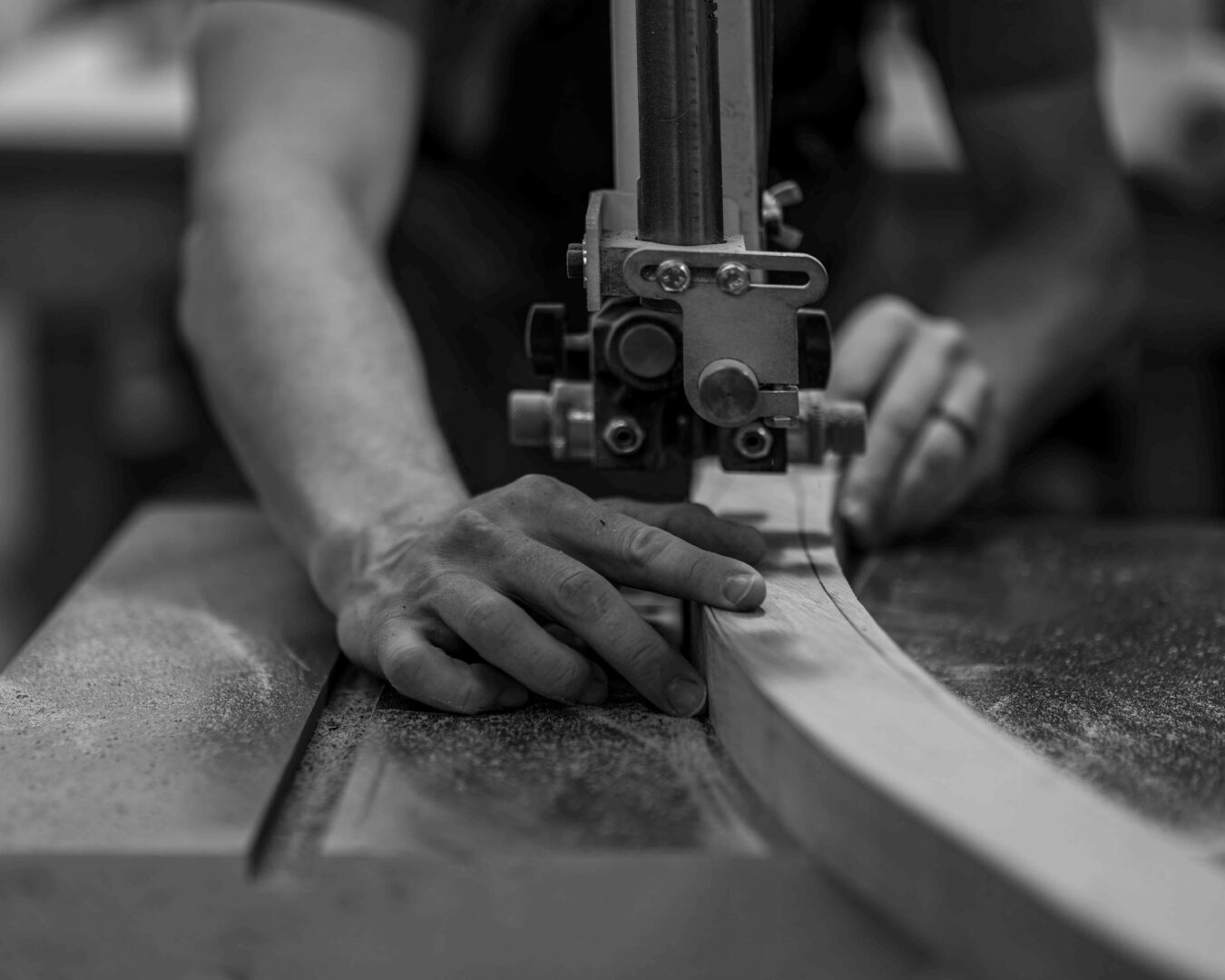
There is so much advice out there about all the different skills and qualities folks need to develop in order to succeed in today’s highly competitive environment and often it can feel overwhelming. So, if we had to break it down to just the three that matter most, which three skills or qualities would you focus on?
1) Be curious, willing to admit it when you do not know something, ask questions, research, learn and persistently try.
Growing up it seemed Dad knew/could do anything & everything. As I got older I realized it wasn’t that he had done everything before or somehow just knew how, it was that he was curious, used not knowing as reason to ask questions/learn and was doggedly persistent in figuring things out/making things work.
2) Just do it. The more you dread it the more important it is to get started.
The first day of middle school, every my English teacher, Mrs Baldwin, would give us a quote or wise saying that we had to write a page about (pen & paper as this was before most people had home computers). We had to come up with three different ways the quote/wise saying could be interpreted, explain which one we identified the most with and why, and explain how we could apply this to our day to day life and turn it in on Friday. I absolutely dreaded it, had it hanging over my head all week, then sat down last thing Thursday night and scribbled out something quick, expecting it would be turned in, graded based on the first few paragraphs and put away. However, Mrs Baldwin choose some kids to read their paper in front of the class, redistributed papers us to grade/wright feedback to our peers, then collected the papers and gave her own responding to what each of us wrote. This left my lazy, last minute work I didn’t really feel good about or want others to associate with me exposed. We were then informed we would do this every week! The first few weeks I continued a similar pattern of Thursday night scribbles, then hoping I would not be called on, my paper would be reviewed by a classmate that cared less than I did and Mrs Baldwin would get so busy with other stuff she would have less time to write feedback on our papers. But she could see through me. Somehow I got called to read my paper to the class on the weeks I had put the least effort in, my paper was reviewed by peers that put in more effort than me and her feedback continued to ask how much time/effort I had put into the paper.
Over the course of the year she helped me recognize the importance of starting the project, encouraging me to sit down with it the night it was assigned for just 5-10 minutes, write out the first one or two ways the quote could be interpreted, revisit on Wednesday for another 5-10 minutes, then if necessary finish up on Thursday. This would give me the next few days to think through the third way, the one I identified with most and how I could apply it to daily life, the parts of my last minute papers that had been the weakest, then come back and finish it up later in the week. Knowing I could set a time limit to the initial work and did not need to complete the whole project in that time reduced my stress about starting. I was surprised at how much easier it was to do the first parts of the assignment knowing I did not need to finish that night. In turn, more often than not, the dread I had previously felt turned into consciously and subconsciously thinking through the specific parts of the project that still needed attention and by the time I would sit down to work on the paper on Wednesday I could usually finish it up in the 5-10 minutes time limit or be so close I didn’t mind spending another few minutes to have it done. Even on the rare occasions where I had to come back to it on Thursday the overall amount of time spent working on the project was less & the quality of the work higher than when I put it off to the last minute. In addition my week felt lighter & freer without the looming dread hanging over my head all week.
Mom hauled 4 of us kids to music & sports, ran the house & worked part time as a nurse. It was a lot, I know she was tired, but she didn’t complain, she just did what needed to be done day in & day out, no excuses, while genuinely caring & asking how everyone else was doing. My mom expected us to do the same as well. She had the four of us kids on a rotating Saturday chores lists. We were required to get our chores done prior to playing in all but the earliest morning soccer matches, basketball games or participating in other fun activities. This taught me to deal with things I didn’t want to do with a reward after, rather than putting things on the back burner or get less than my best effort.
3) Give your best effort, especially when it is hard.
School, except spelling, generally came easy enough I could bring home good grades without much effort, but she wouldn’t let me slide. She made it clear time after time she cared more about if I done the best that I could than the grade. Since spelling came hard to me giving my best effort meant making flashcards & spending a few minutes with them a few times throughout the week.
Starting a business requires a willingness to admit there are many things you do not know (can be within your own industry or marketing, web design, accounting, commercial leases, etc). Getting started and addressing those things head on allows time to research & break down the issue into smaller bit size pieces with time for researching on own, connecting with other business owner that have likely had to deal with the same questions about how to work through them and/or recommendations of who to hire to help while there is still time to get on their calendar. Being intentional about consistently giving your best effort/holding yourself to a high standard helps make that your default mode of operation, making it easier to catch yourself if something is not up to standard before clients (or coworkers/bosses/ general public) receive it and call you out on it or simply choose to do future business elsewhere instead of coming back to you.
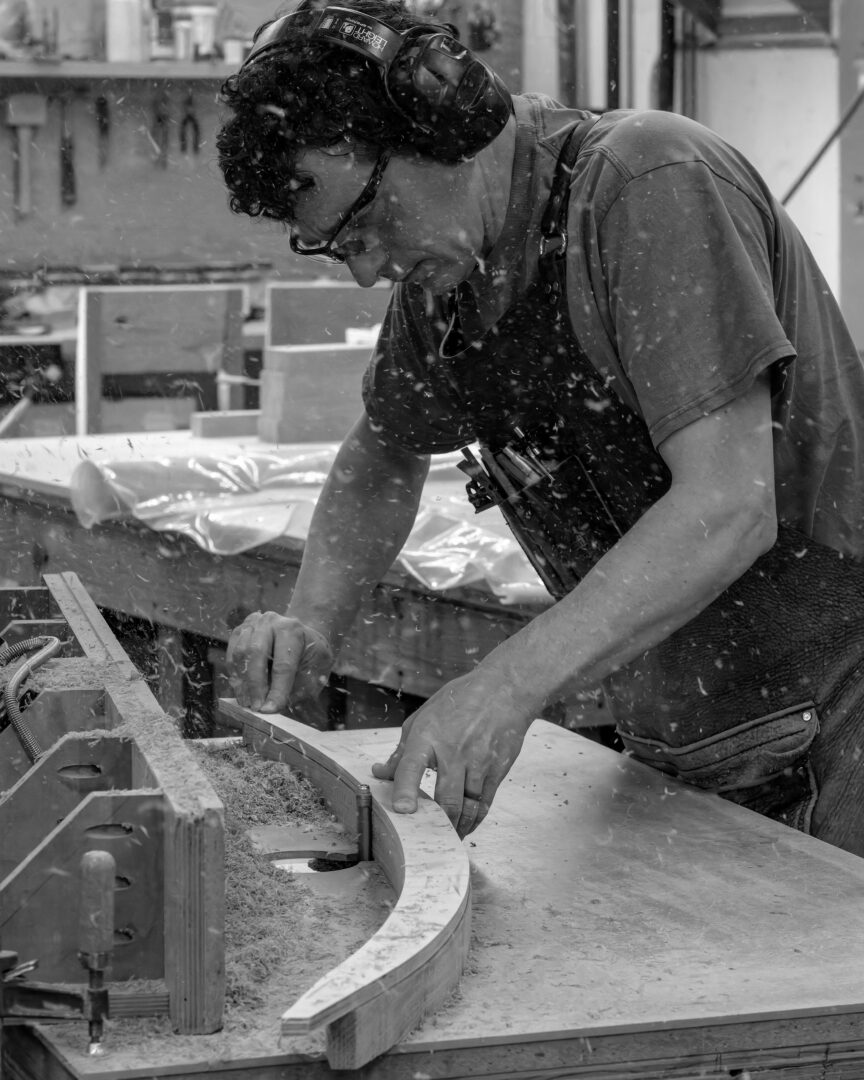
What would you advise – going all in on your strengths or investing on areas where you aren’t as strong to be more well-rounded?
I see it more of a “yes, and” then an “either/or”! It is impossible to be all things to all people. It is important to identify and utilize your/your business’s strengths. Your specific combination of strengths give you a unique perspective and contribution. It is good to be an expert.
Focusing a business on serving customers that within its strengths/focus area not only makes sure you are providing good service, it also leads to attracting more business like that. For example, my business focuses on high quality custom projects from locally sourced wood. Could I do a run of cabinets in melamine or particle board? Yes, but there are many other companies that market themself as the cheapest and are set up to do that as efficiently as possible. Taking on that work would be a detour from the type of work I am set up to do (my strengths), a mindset shift in quality/construction techniques to be competitive with others that use the high volume, low margin, lower quality level as a way to offer lower price point and keep their business alive, and result in a project I do not want on my portfolio attracting similar projects.
That said, the biggest gains can be found by identifying and making improvements in areas you are not as strong in. Doing an honest self evaluation, asking someone else who knows you for their honest personal feedback, or taking the time to talk through your business, how it operates/general processes/reflecting back on recent projects can bring to light an area you had not noticed or tried to ignore that is holding your business back or detrimental to interactions with others. Find yourself regularly blowing through promised timelines or scrambling to meet them? Scheduling is likely an issue where a candid review that exposes & corrects a specific step/process that is less efficient and can be streamlined and/or more general how much you can actually achieve within a certain time vs what you think you can achieve/tell customers, but could also be related to lead times, on materials or other outside factors that are not being accounted for accurately in your timeline) will lead to smoother business flow, happier customers and improve your quality of life.
Contact Info:
- Website: https://nussbaumfurniture.com
- Instagram: @nussbaumfurniture
- Facebook: NussbaumFurnitureMaker
- Youtube: @Nussbaum-Furniture
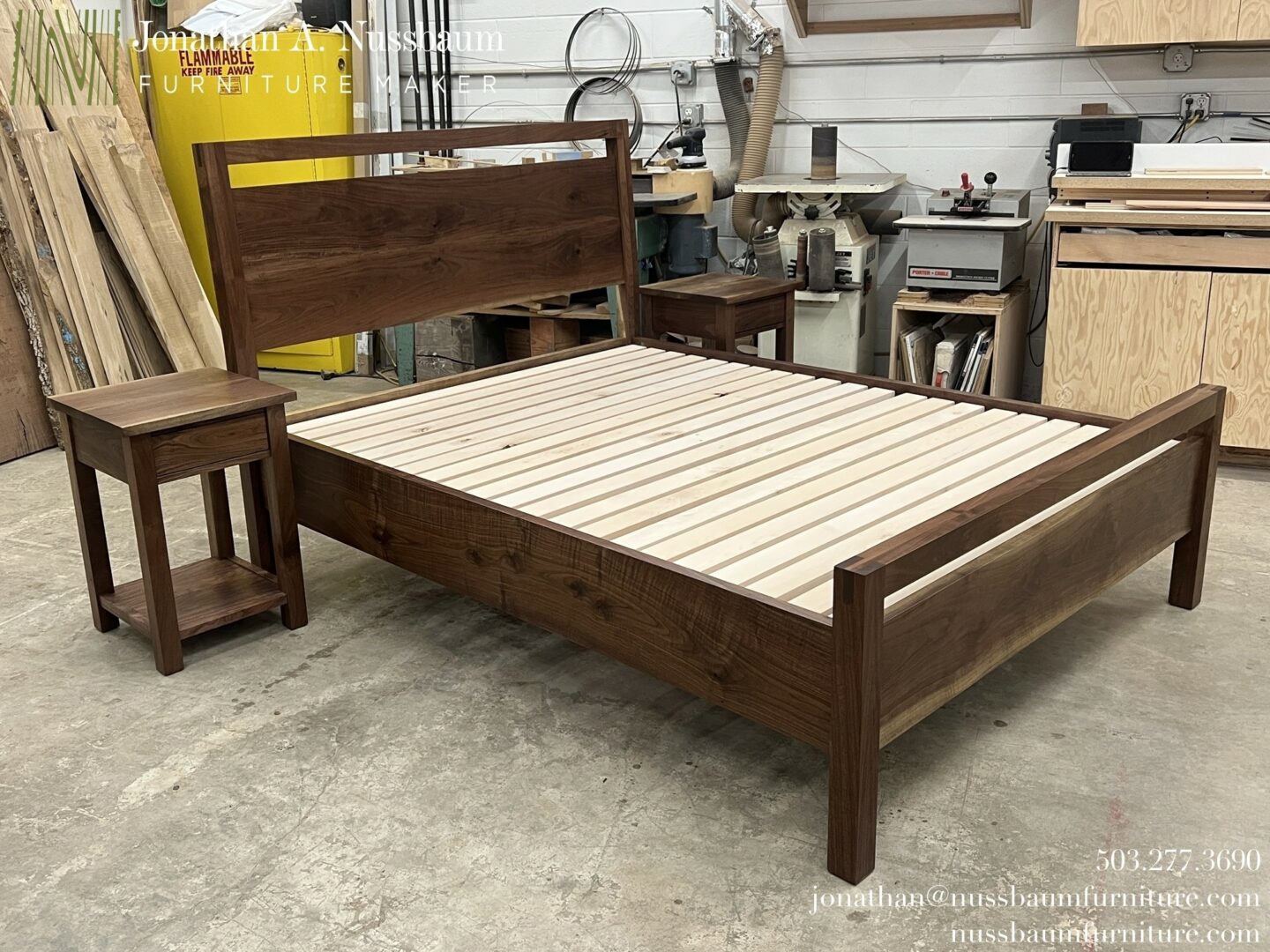
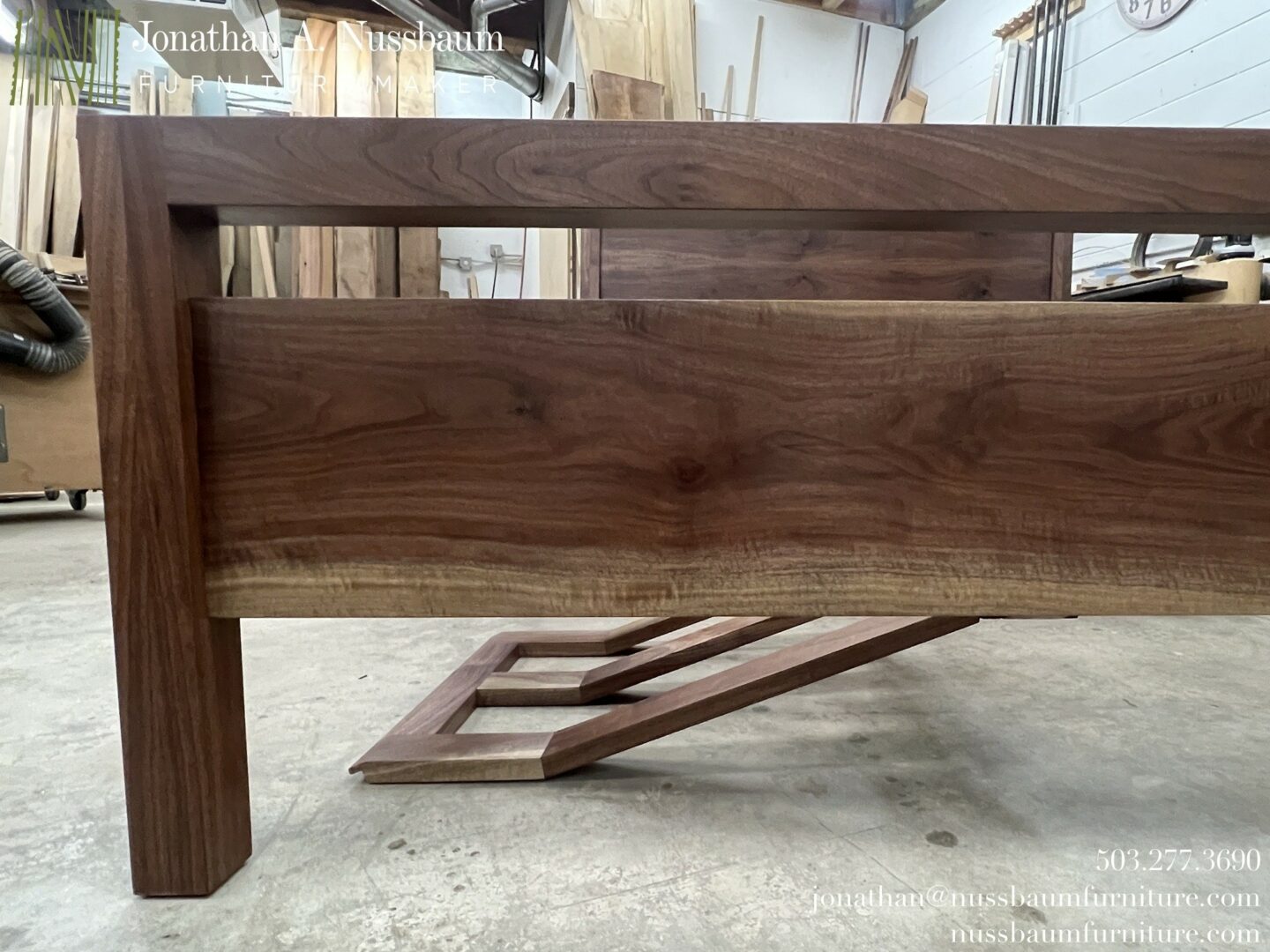
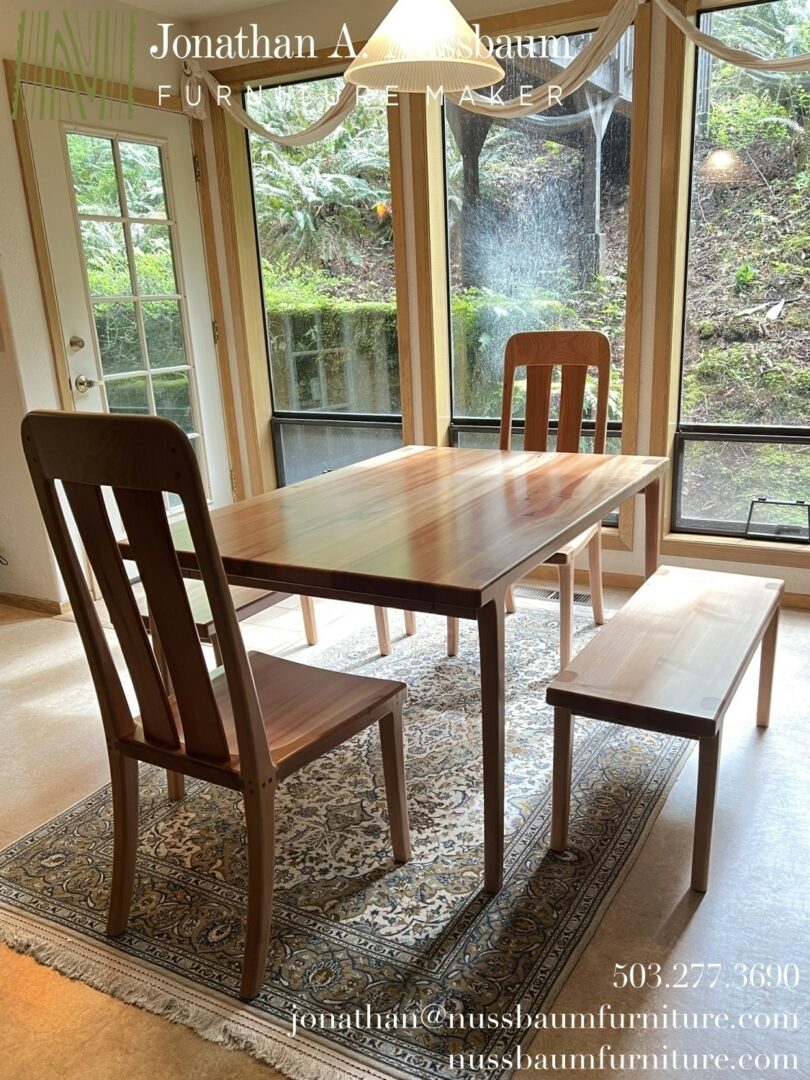
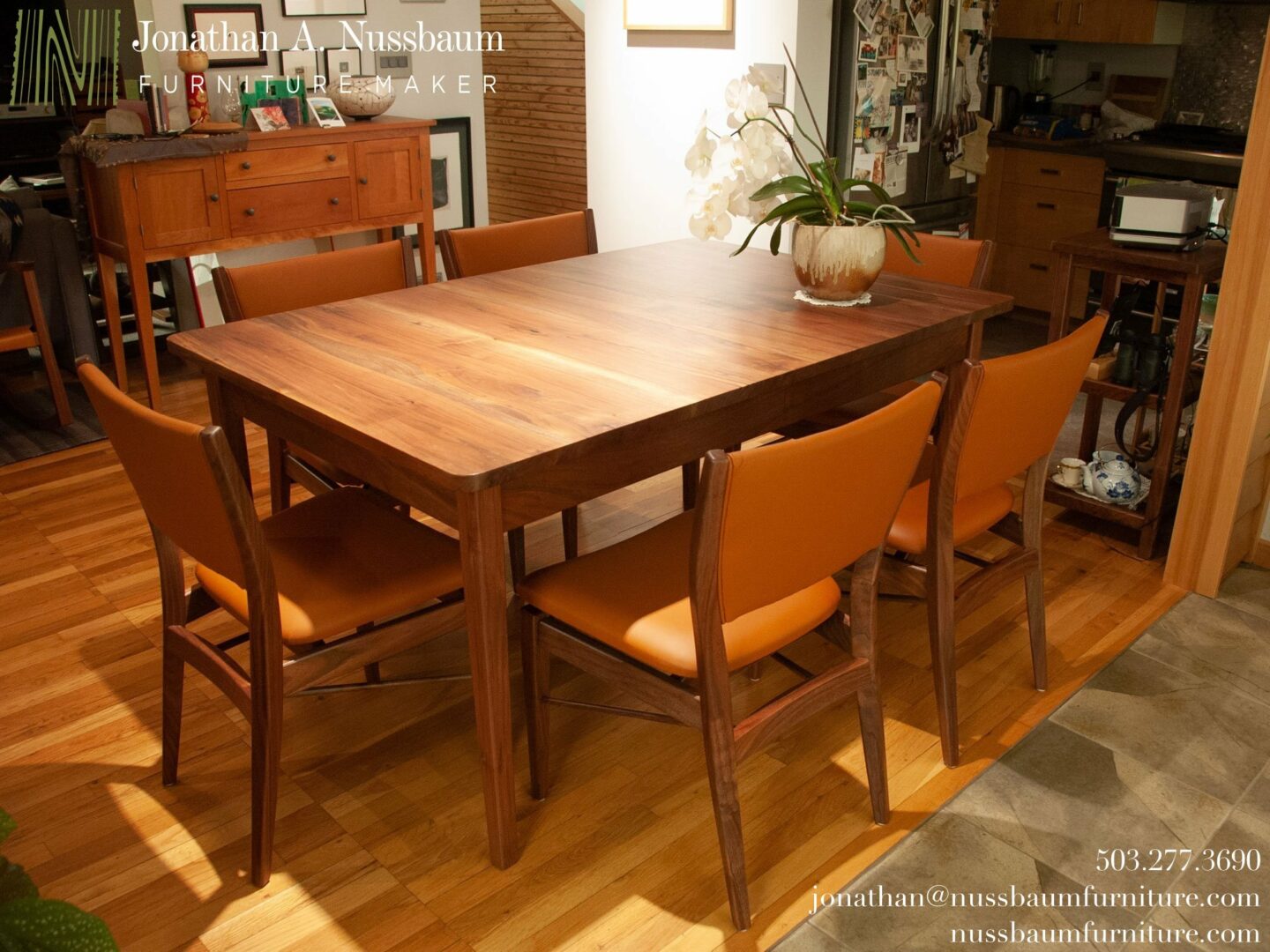
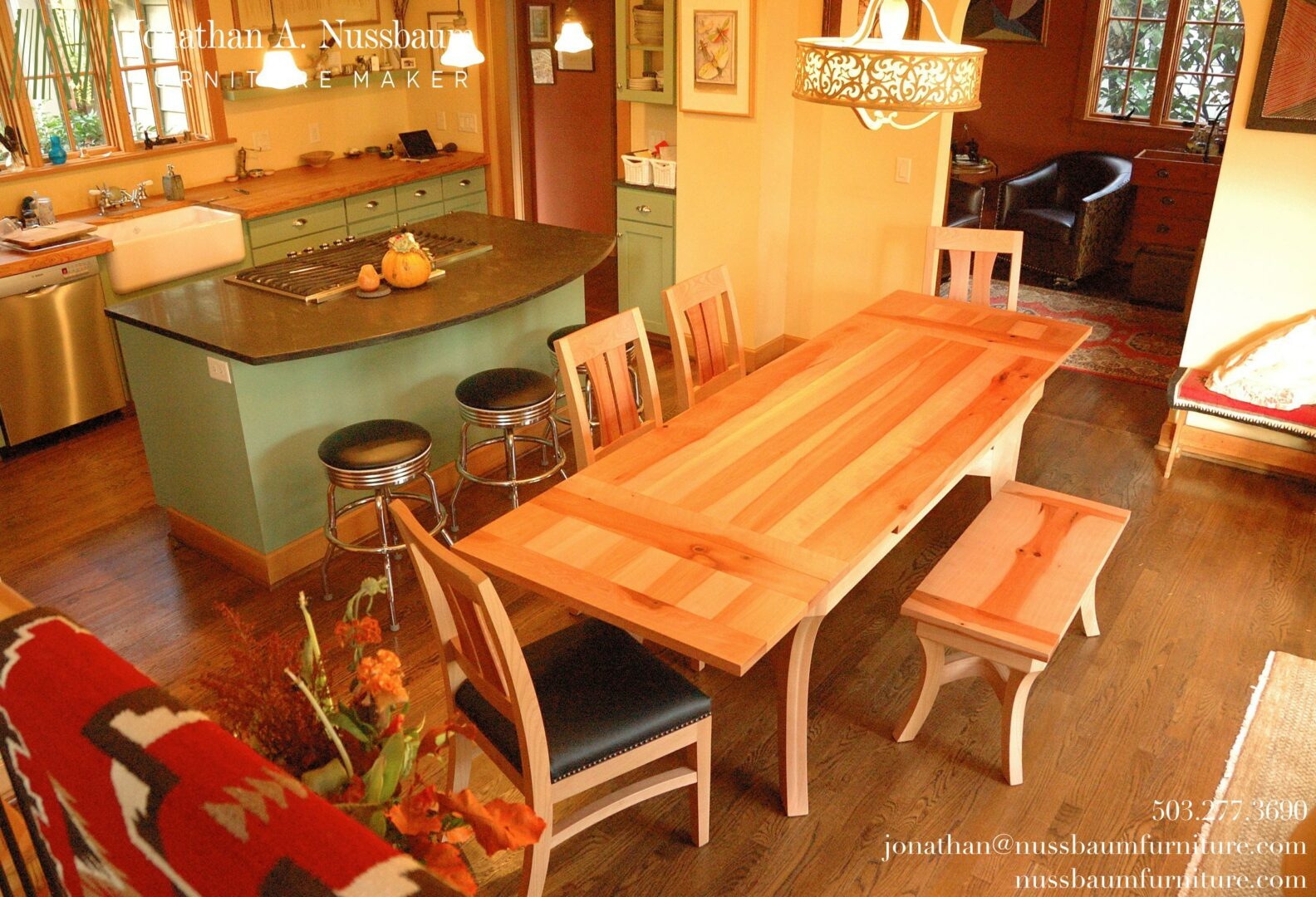
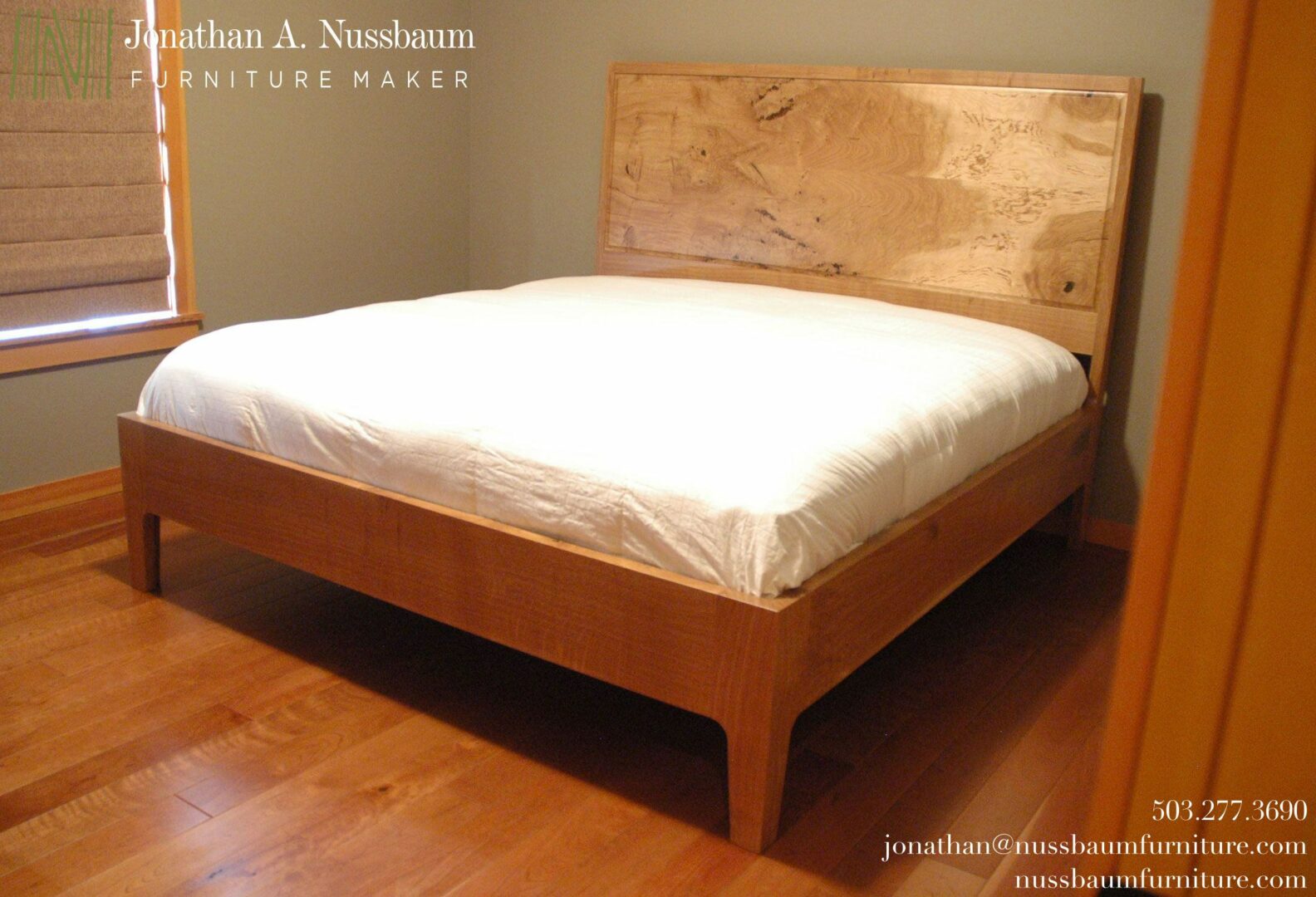
so if you or someone you know deserves recognition please let us know here.

